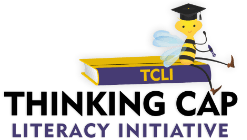“Does the person taking all the prizes have two heads?” “Are you not ashamed of yourself?”
Many of us have been on the receiving end of statements like this from African parents or even teachers at school. While growing up, schooling was relatively easy for me. However, I remember the classmates that the teachers didn’t bother calling on to answer questions. I also recall those students that always get jeered at because they found it difficult to keep up.
Nonetheless, what most people failed to realize was that these kids were victims caught in the struggle of the adults in their lives.
While it may be difficult to relate to learning disabilities faced by children, we must accept that these disabilities do exist.
A learning disability is a neurological condition that affects the brain’s ability to send, receive, and process information.
I often meet teachers, parents, and other students who seem to lack empathy and patience when working with learners with disabilities. Very recently, curious parents take their children for tests to ascertain their learning disabilities or not. However, many people are going about with undiagnosed disabilities and carrying this feeling of inferiority and a lack of self-worth.
Here are some learning disabilities and signs to look out for:
- Dyslexia: difficulty in reading;
- Dyscalculia- difficulty in performing mathematical calculations;
- Dysgraphia- difficulty in writing mostly as a result of dyslexia, poor motor coordination;
- Dysphasia- learning disabilities in language;
- Dyspraxia- learning disabilities in motor skills e.g cutting, writing, etc.
To make the learning experience excellent, school authorities need to identify children with learning problems for appropriate intervention.
Also, teachers should give special attention to kids and adolescents who have learning disabilities in the classroom.
The government can also channel more funding toward creating awareness of the existence of learning disabilities.
I believe that understanding and empathy are key parts of building the right mindset to teach all students.
I hereby encourage you to read about these disabilities so you can get a glimpse of the reality they face. Reading about these would also help you greet them with the patience, understanding, and strategies they require.

No comment yet, add your voice below!